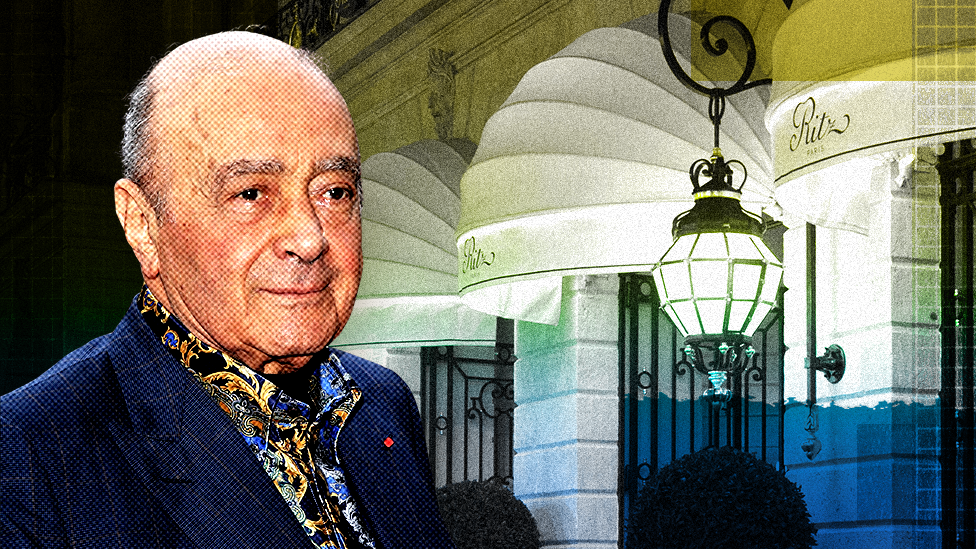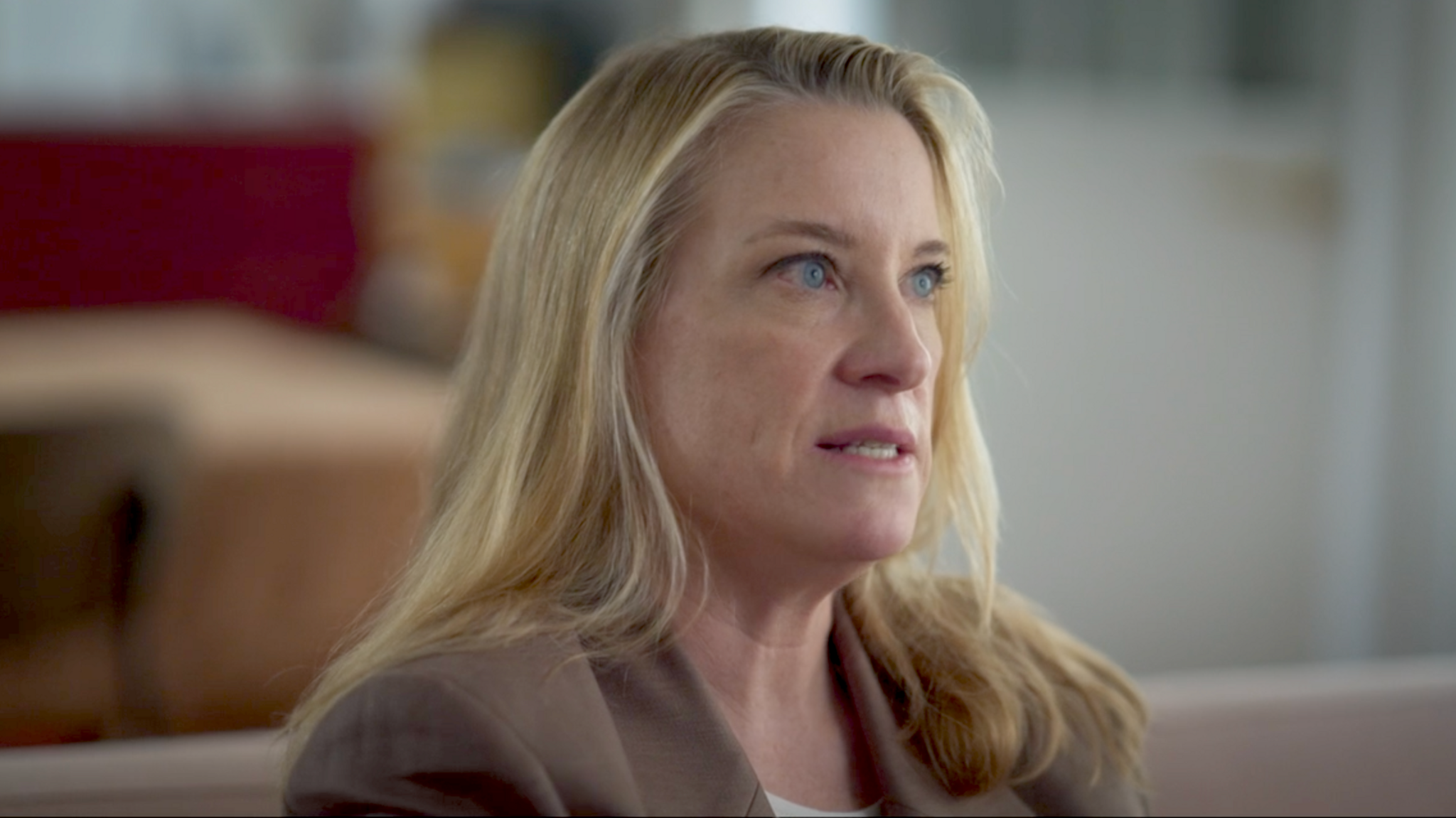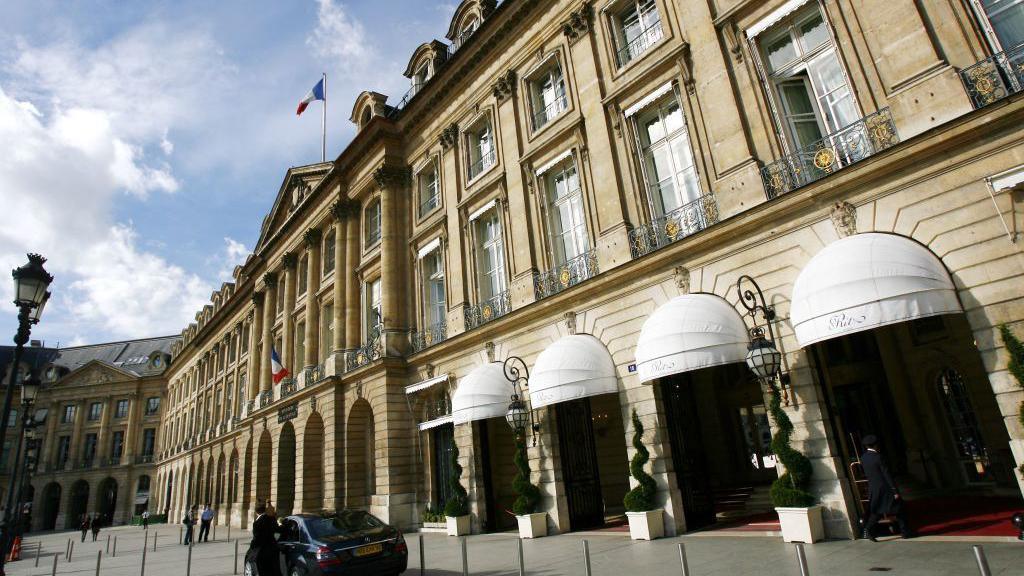Al Fayed’s victims in France call for investigation

- Published
French prosecutors are being urged to launch an investigation into allegations of rapes and sexual assault by Mohammed Al Fayed at the Paris Ritz, and into the “cult-like” hotel management that enabled his attacks.
The BBC understands more than five women have come forward with new claims about Al Fayed’s predatory behaviour in France since the BBC first reported the rape allegations in a documentary last week.
A lawyer representing Kristina Svensson, who spoke out in the documentary about the abuse she suffered at the Ritz, said she plans to ask the Paris prosecutor’s office early next week to launch an investigation.
The Ritz did not comment on the calls for an investigation.

Kristina Svensson said Al Fayed cultivated an atmosphere like a cult or a mafia
Ms Svensson, who was executive assistant at the Ritz between 1998 and 2000, said: “We’re in enough of a rage that nothing is going to stop us."
In the documentary, Al Fayed: Predator at Harrods, the BBC revealed multiple allegations of rape against the late billionaire owner of London’s most famous department store, along with evidence that the company not only failed to intervene, but helped to cover up the alleged abuse.
Ms Svensson said that Al Fayed cultivated an atmosphere “very much like one of a cult, one of a gang, of a mafia” in all his establishments, which also included the Ritz.
“There was a vow of omerta,” she said, referring to the mafia’s code of silence.
She said she believed “at least 50” people who had worked with her at the Paris Ritz between 1998 and 2000 knew about Al Fayed’s behaviour.
“People need to pick their side and decide if they were culpable in any way and chose to remain silent. They need to understand that the legal teams we have will leave no stone unturned. I have meticulous proof, and I know others do,” she said.
Ms Svesson said: “I think a full investigation is needed. Specific people… enabled this culture to exist.”

The Ritz said it "strongly condemns any form of behaviour that does not align with the values of the establishment"
Anne-Claire Le Jeune, a lawyer who has worked on many cases of sexual abuse, including the Jeffrey Epstein case, said that if there are a lot of women involved, the prosecutor “has the moral duty to open an investigation to try to figure out exactly how this abuse could happen”.
Ms Le Jeune said another woman had contacted her directly in recent days alleging abuse by Al Fayed. French prosecutors are under no obligation to open an investigation but both Ms Le Jeune and Ms Svensson are hoping increased media attention in France may prompt other women to come forward.
It is not known if any complaints about Al Fayed were made to French authorities while he was alive.
“I think there are a lot of managers who no longer work there who would be ready to speak to police about what happened,” Ms Svensson told the BBC.
Ms Lejeune said: “A lot of people could have known what happened (at the Ritz). Some of them couldn’t speak out and I can understand that. But others maybe tried to help Al Fayed to commit his crimes. So that’s why it is very important to identify them.”
The Ritz hotel, which is still owned by the Al Fayed family, has only made one brief statement since the BBC documentary aired, in which it did not address any specific allegations but said it “strongly condemns any form of behaviour that does not align with the values of the establishment.”
The hotel, which is located beside the French Justice Ministry in Place Vendome in the heart of the capital, remains a Paris landmark. It is perhaps best known in recent decades as the place where Princess Diana ate her last meal before her death, in a car beside her partner - Dodi Al Fayed, Mohamed’s son - on 31 August 1997.
Ms Svensson said her decision to speak out had brought her “much joy,” adding that many of Al Fayed’s victims were now in their 50s and are “at a point in life where we’re able to muster the courage” and “don’t want our daughters and grandchildren” to suffer similar abuse.
Get in touch
Have you been affected by this story?